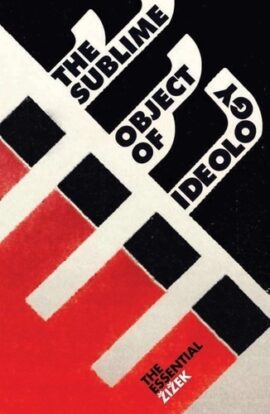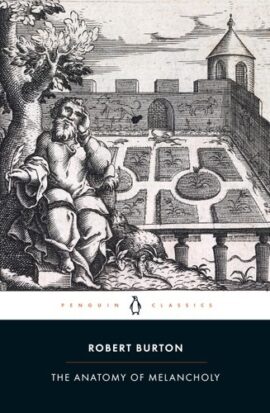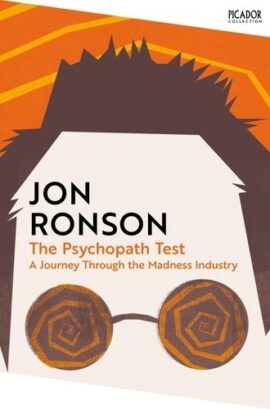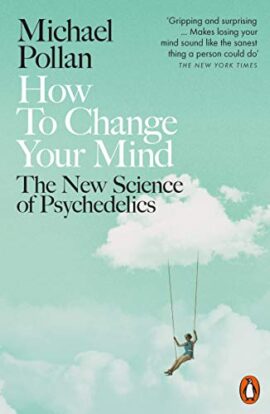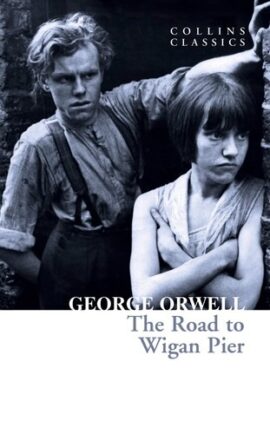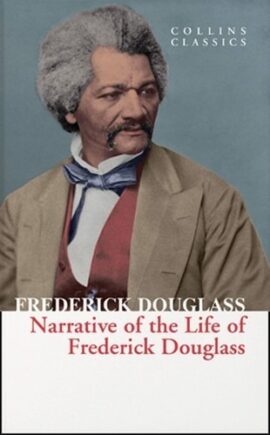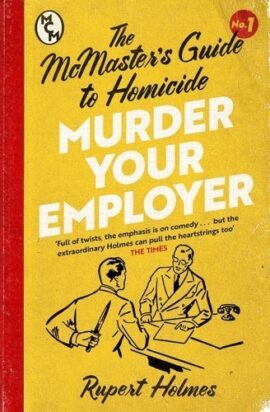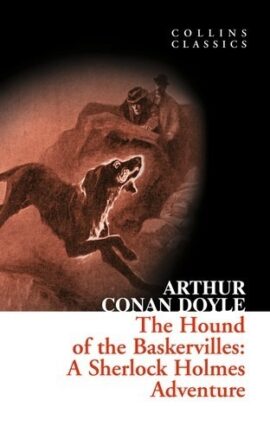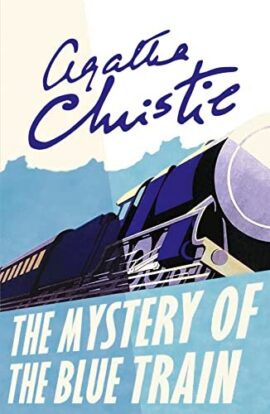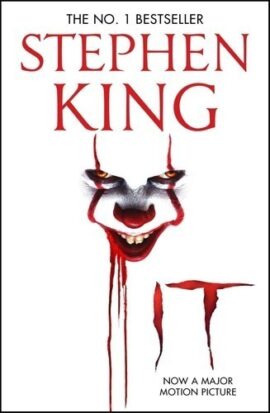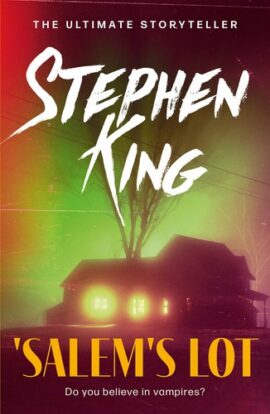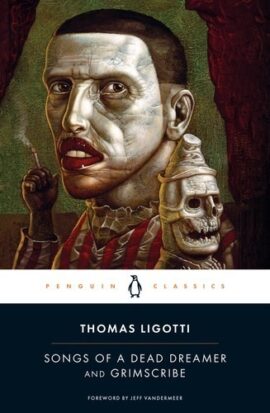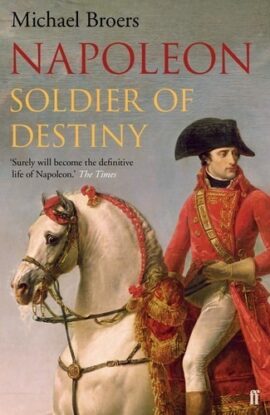Affichage de 201–225 sur 1010 résultatsTrié par popularité
Love Is a Dog from Hell
A classic in the Bukowski poetry canon, Love Is a Dog from Hell is a raw, lyrical, exploration of the exigencies, heartbreaks, and limits of love.
A book that captures the Dirty Old Man of American letters at his fiercest and most vulnerable, on a subject that hits home with all of us. Charles Bukowski was a man of intense emotions, someone an editor once called a “passionate madman.” Alternating between tough and gentle, sensitive and gritty, Bukowski lays bare the myriad facets of love—its selfishness and its narcissism, its randomness, its mystery and its misery, and, ultimately, its true joyfulness, endurance, and redemptive power.
"there is a loneliness in this world so great
that you can see it in the slow movement of
the hands of a clock."
A book that captures the Dirty Old Man of American letters at his fiercest and most vulnerable, on a subject that hits home with all of us. Charles Bukowski was a man of intense emotions, someone an editor once called a “passionate madman.” Alternating between tough and gentle, sensitive and gritty, Bukowski lays bare the myriad facets of love—its selfishness and its narcissism, its randomness, its mystery and its misery, and, ultimately, its true joyfulness, endurance, and redemptive power.
"there is a loneliness in this world so great
that you can see it in the slow movement of
the hands of a clock."
The Sublime Object of Ideology
Slavoj iek, the maverick philosopher, author of over 30 books, acclaimed as the “Elvis of cultural theory”, and today’s most controversial public intellectual. His work traverses the fields of philosophy, psychoanalysis, theology, history and political theory, taking in film, popular culture, literature and jokes—all to provide acute analyses of the complexities of contemporary ideology as well as a serious and sophisticated philosophy. His recent films The Pervert’s Guide to the Cinema and iek! reveal a theorist at the peak of his powers and a skilled communicator. Now Verso is making his classic titles, each of which stand as a core of his ever-expanding life’s work, available as new editions. Each is beautifully re-packaged, including new introductions from iek himself. Simply put, they are the essential texts for understanding iek’s thought and thus cornerstones of contemporary philosophy.
The Sublime Object of Ideology: Slavoj iek’s first book is a provocative and original work looking at the question of human agency in a postmodern world. In a thrilling tour de force that made his name, he explores the ideological fantasies of wholeness and exclusion which make up human society.
The Sublime Object of Ideology: Slavoj iek’s first book is a provocative and original work looking at the question of human agency in a postmodern world. In a thrilling tour de force that made his name, he explores the ideological fantasies of wholeness and exclusion which make up human society.
The Poetics of Space
A beloved multidisciplinary treatise comes to Penguin Classics
Since its initial publication in 1958, The Poetics of Space has been a muse to philosophers, architects, writers, psychologists, critics, and readers alike. The rare work of irresistibly inviting philosophy, Bachelard’s seminal work brims with quiet revelations and stirring, mysterious imagery. This lyrical journey takes as its premise the emergence of the poetic image and finds an ideal metaphor in the intimate spaces of our homes. Guiding us through a stream of meditations on poetry, art, and the blooming of consciousness itself, Bachelard examines the domestic places that shape and hold our dreams and memories. Houses and rooms; cellars and attics; drawers, chests, and wardrobes; nests and shells; nooks and corners: No space is too vast or too small to be filled by our thoughts and our reveries. In Bachelard’s enchanting spaces, “We are never real historians, but always near poets, and our emotion is perhaps nothing but an expression of a poetry that was lost.”
This new edition features a foreword by Mark Z. Danielewski, whose bestselling novel House of Leaves drew inspiration from Bachelard’s writings, and an introduction by internationally renowned philosopher Richard Kearney who explains the book’s enduring importance and its role within Bachelard’s remarkable career.
For more than sixty-five years, Penguin has been the leading publisher of classic literature in the English-speaking world. With more than 1,500 titles, Penguin Classics represents a global bookshelf of the best works throughout history and across genres and disciplines. Readers trust the series to provide authoritative texts enhanced by introductions and notes by distinguished scholars and contemporary authors, as well as up-to-date translations by award-winning translators.
Since its initial publication in 1958, The Poetics of Space has been a muse to philosophers, architects, writers, psychologists, critics, and readers alike. The rare work of irresistibly inviting philosophy, Bachelard’s seminal work brims with quiet revelations and stirring, mysterious imagery. This lyrical journey takes as its premise the emergence of the poetic image and finds an ideal metaphor in the intimate spaces of our homes. Guiding us through a stream of meditations on poetry, art, and the blooming of consciousness itself, Bachelard examines the domestic places that shape and hold our dreams and memories. Houses and rooms; cellars and attics; drawers, chests, and wardrobes; nests and shells; nooks and corners: No space is too vast or too small to be filled by our thoughts and our reveries. In Bachelard’s enchanting spaces, “We are never real historians, but always near poets, and our emotion is perhaps nothing but an expression of a poetry that was lost.”
This new edition features a foreword by Mark Z. Danielewski, whose bestselling novel House of Leaves drew inspiration from Bachelard’s writings, and an introduction by internationally renowned philosopher Richard Kearney who explains the book’s enduring importance and its role within Bachelard’s remarkable career.
For more than sixty-five years, Penguin has been the leading publisher of classic literature in the English-speaking world. With more than 1,500 titles, Penguin Classics represents a global bookshelf of the best works throughout history and across genres and disciplines. Readers trust the series to provide authoritative texts enhanced by introductions and notes by distinguished scholars and contemporary authors, as well as up-to-date translations by award-winning translators.
The Anatomy of Melancholy
Ostensibly a guidebook to melancholia or depression, Burton's masterpiece is really an all-encompassing examination of the human condition.
The Anatomy of Melancholy is the vast and only work by Robert Burton, the seventeenth-century English priest and scholar. It 'opens and cuts up' the condition of melancholy, or depression as we know it today, and in doing so explores a dizzying range of additional topics including goblins, beauty, the geography of America, digestion, the passions, alcohol and kissing. Burton believed that reading was a cure for melancholy, and so the book itself - one of the most unique and uncategorisable works of all time - can be seen as a tonic for the very condition it describes.
The Anatomy of Melancholy is the vast and only work by Robert Burton, the seventeenth-century English priest and scholar. It 'opens and cuts up' the condition of melancholy, or depression as we know it today, and in doing so explores a dizzying range of additional topics including goblins, beauty, the geography of America, digestion, the passions, alcohol and kissing. Burton believed that reading was a cure for melancholy, and so the book itself - one of the most unique and uncategorisable works of all time - can be seen as a tonic for the very condition it describes.
How to Live: A Life of Montaigne in One Question and Twenty Attempts at an Answer
Brilliant, original, funny and moving — a vivid portrait of Montaigne, showing how his ideas gave birth to our modern sense of our inner selves, from Shakespeare's plays to the dilemmas we face today.
How to get on well with people, how to deal with violence, how to adjust to losing someone you love — such questions arise in most people's lives. They are all versions of a bigger question: how do you live? How do you do the good or honourable thing, while flourishing and feeling happy?
This question obsessed Renaissance writers, none more than Michel Eyquem de Montaigne (1533-92), perhaps the first truly modern individual. A nobleman, public official and wine-grower, he wrote free-roaming explorations of his thought and experience, unlike anything written before. He called them 'essays', meaning 'attempts' or 'tries'. Into them he put whatever was in his head: his tastes in wine and food, his childhood memories, the way his dog's ears twitched when it was dreaming, as well as the appalling events of the religious civil wars raging around him. The Essays was an instant bestseller, and over four hundred years later, Montaigne's honesty and charm still draw people to him. Readers come to him in search of companionship, wisdom and entertainment — and in search of themselves.
This book, a spirited and singular biography (and the first full life of Montaigne in English for nearly fifty years), relates the story of his life by way of the questions he posed and the answers he explored. It traces his bizarre upbringing (made to speak only Latin), youthful career and sexual adventures, his travels, and his friendships with the scholar and poet Etienne de La Boétie and with his adopted 'daughter', Marie de Gournay. And as we read, we also meet his readers — who for centuries have found in Montaigne an inexhaustible source of answers to the haunting question, 'how to live?'
From the Hardcover edition.
How to get on well with people, how to deal with violence, how to adjust to losing someone you love — such questions arise in most people's lives. They are all versions of a bigger question: how do you live? How do you do the good or honourable thing, while flourishing and feeling happy?
This question obsessed Renaissance writers, none more than Michel Eyquem de Montaigne (1533-92), perhaps the first truly modern individual. A nobleman, public official and wine-grower, he wrote free-roaming explorations of his thought and experience, unlike anything written before. He called them 'essays', meaning 'attempts' or 'tries'. Into them he put whatever was in his head: his tastes in wine and food, his childhood memories, the way his dog's ears twitched when it was dreaming, as well as the appalling events of the religious civil wars raging around him. The Essays was an instant bestseller, and over four hundred years later, Montaigne's honesty and charm still draw people to him. Readers come to him in search of companionship, wisdom and entertainment — and in search of themselves.
This book, a spirited and singular biography (and the first full life of Montaigne in English for nearly fifty years), relates the story of his life by way of the questions he posed and the answers he explored. It traces his bizarre upbringing (made to speak only Latin), youthful career and sexual adventures, his travels, and his friendships with the scholar and poet Etienne de La Boétie and with his adopted 'daughter', Marie de Gournay. And as we read, we also meet his readers — who for centuries have found in Montaigne an inexhaustible source of answers to the haunting question, 'how to live?'
From the Hardcover edition.
Right Kind of Wrong: Why Learning to Fail Can Teach Us to Thrive
We All Fail Sometimes. Now, A World-leading Harvard Professor Reveals How These Failures Can Lead Us To Happier, More Successful Lives - Provided We Know How To Learn From Them. We Used To Think Of Failure As A Problem, To Be Avoided At All Costs. Now, We're Often Told That Failure Is Desirable - That We Must 'fail Fast, Fail Often'. The Trouble Is, Neither Approach Distinguishes The Good Failures From The Bad. As A Result, We Miss The Opportunity To Fail Well. Here, Amy Edmondson - The World's Most Influential Organisational Psychologist - Reveals How We Get Failure Wrong, And How To Get It Right. She Draws On A Lifetime's Research Into The Science Of 'psychological Safety' To Show That The Most Successful Cultures Are Those In Which You Can Fail Openly, Without Your Mistakes Being Held Against You. She Introduces The Three Archetypes Of Failure - Simple, Complex And Intelligent - And Explains How To Harness The Revolutionary Potential Of The Good Ones (and Eliminate The Bad). And She Tells Vivid Stories Ranging From The History Of Open Heart Surgery To The Columbia Space Shuttle Disaster, All To Ask A Simple, Provocative Question: What If It Is Only By Learning To Fail That We Can Hope To Truly Succeed?
HARRY POTTER: THE BLUEPRINTS
Go behind the scenes of the Harry Potter film series with this compendium of stunning blueprints depicting spellbinding magical wizarding world locations from all eight films.
Harry Potter: The Blueprints showcases the work of the artists who laid the foundation for the visually enchanting buildings, homes, rooms, and settings from all eight Harry Potter films.
ICONIC LOCATIONS: 260 pages of stunningly detailed blueprints and in-depth commentary on creating the architecture of beloved Harry Potter buildings, homes, settings, and locations, including Hogwarts Castle, the Triwizard Tournament, Hogsmeade, and more.
FILMMAKING SECRETS: Learn how Hogwarts and other locations in the wizarding world went from sketch to screen.
DELUXE DETAILS: This generously sized volume beautifully showcases rare and unique sketches, notes, drafts, and photos.
Harry Potter: The Blueprints showcases the work of the artists who laid the foundation for the visually enchanting buildings, homes, rooms, and settings from all eight Harry Potter films.
ICONIC LOCATIONS: 260 pages of stunningly detailed blueprints and in-depth commentary on creating the architecture of beloved Harry Potter buildings, homes, settings, and locations, including Hogwarts Castle, the Triwizard Tournament, Hogsmeade, and more.
FILMMAKING SECRETS: Learn how Hogwarts and other locations in the wizarding world went from sketch to screen.
DELUXE DETAILS: This generously sized volume beautifully showcases rare and unique sketches, notes, drafts, and photos.
Kakeibo
SAVE MONEY IN 2020 WITH THIS SIMPLE AND FOOLPROOF JOURNAL
________
'Experts claim it could help some people cut spending by up to 35%' Mail Online
People in Japan are masters of minimal living, able to make do with less in all aspects of life, whether it's de-cluttering personal belongings or savvy seasonal cooking. But at the heart of all this is the kakeibo: the budgeting journal used to set saving goals and spend wisely.
It's simple: at the beginning of each month you sit down with your kakeibo and think about how much you would like to save and what you will need to do in order to reach your goal. There is space to jot down your weekly spending and reflect on the month just gone.
A kakeibo ensures helps make saving a part of your everyday life, while also giving you the opportunity to reflect and improve every month.
Get a grip on your spending and start to achieve your goals, by finding ways to save for the things that really matter in your life.
Don't give up what you want most for what you want now . . . This is the Japanese Journal that puts more money in YOUR pocket every month.
'The simple art of keeping track of your finances . . . this is about being financially mindful rather than letting a gadget do the thinking for you' The Sunday Times
________
'Experts claim it could help some people cut spending by up to 35%' Mail Online
People in Japan are masters of minimal living, able to make do with less in all aspects of life, whether it's de-cluttering personal belongings or savvy seasonal cooking. But at the heart of all this is the kakeibo: the budgeting journal used to set saving goals and spend wisely.
It's simple: at the beginning of each month you sit down with your kakeibo and think about how much you would like to save and what you will need to do in order to reach your goal. There is space to jot down your weekly spending and reflect on the month just gone.
A kakeibo ensures helps make saving a part of your everyday life, while also giving you the opportunity to reflect and improve every month.
Get a grip on your spending and start to achieve your goals, by finding ways to save for the things that really matter in your life.
Don't give up what you want most for what you want now . . . This is the Japanese Journal that puts more money in YOUR pocket every month.
'The simple art of keeping track of your finances . . . this is about being financially mindful rather than letting a gadget do the thinking for you' The Sunday Times
How to Change Your Mind: The New Science of Psychedelics
The No.1 New York Times Bestseller'Gripping and surprising ... Pollan makes losing your mind sound like the sanest thing a person could do' The New York Times Book ReviewCould psychedelic drugs change our worldview? Join Michael Pollan on a journey to the frontiers of the human mind.Diving deep into an extraordinary world - from shamans and magic mushroom hunts to the pioneering labs mapping our brains - and putting himself forward as a guinea-pig, Michael Pollan has written a remarkable history of psychedelics and a compelling portrait of the new generation of scientists fascinated by the implications of these drugs. How to Change Your Mind is a report from what could very well be the future of consciousness.'A sweeping and often thrilling chronicle of the history of psychedelics, all interwoven with Pollan's adventures as a psychedelic novice. This is a serious work of history and science, but also one in which the author, under the influence of toad venom, becomes convinced he's giving birth to himself' Oliver Burkeman, Guardian'A mind-altering book ... full of transformations' Richard Godwin, Evening Standard'An irresistible blend of history, research and personal experience. In terms of the psychedelic wave, the book is the big kahuna, the Big Bang moment for a movement that is gathering force' John McKenna, Irish Times'Entertaining and engrossing' Paul Laity, Financial Times'Deeply absorbing, wise and beautifully written' Mick Brown, Literary Review'An astounding book' Andrew Sullivan, New York Magazine
Black Milk: On Motherhood and Writing
A thoughtful and incisive meditation on literature, motherhood, and spiritual wellbeing from Turkey's leading female author
After the birth of her first child, Elif Shafak experienced a profound personal crisis. Plagued by guilt, anxiety, and bewilderment about her new maternal role, the acclaimed novelist stopped writing for the first time in her life. As she plummeted into post-partum depression, Shafak looked to the experiences of other prominent female writers--including Sylvia Plath, Virginia Woolf, Simone de Beauvoir, and Alice Walker--for help navigating the conflict between motherhood and artistic creation in a male-dominated society. Searingly honest, eloquent, and unexpectedly humorous, "Black Milk" will be widely embraced by writers, academics, and anyone who has undergone the identity crisis engendered by being a mother.
After the birth of her first child, Elif Shafak experienced a profound personal crisis. Plagued by guilt, anxiety, and bewilderment about her new maternal role, the acclaimed novelist stopped writing for the first time in her life. As she plummeted into post-partum depression, Shafak looked to the experiences of other prominent female writers--including Sylvia Plath, Virginia Woolf, Simone de Beauvoir, and Alice Walker--for help navigating the conflict between motherhood and artistic creation in a male-dominated society. Searingly honest, eloquent, and unexpectedly humorous, "Black Milk" will be widely embraced by writers, academics, and anyone who has undergone the identity crisis engendered by being a mother.
The Subtle Art of Not Giving a F*ck: A Counterintuitive Approach to Living a Good Life
#1 New York Times Bestseller • More than 10 million Copies Sold
In this generation-defining self-help guide, a superstar blogger cuts through the crap to show us how to stop trying to be "positive" all the time so that we can truly become better, happier people.
For decades, we’ve been told that positive thinking is the key to a happy, rich life. "F**k positivity," Mark Manson says. "Let’s be honest, shit is f**ked and we have to live with it." In his wildly popular Internet blog, Manson doesn’t sugarcoat or equivocate. He tells it like it is—a dose of raw, refreshing, honest truth that is sorely lacking today. The Subtle Art of Not Giving a F**k is his antidote to the coddling, let’s-all-feel-good mindset that has infected modern society and spoiled a generation, rewarding them with gold medals just for showing up.
Manson makes the argument, backed both by academic research and well-timed poop jokes, that improving our lives hinges not on our ability to turn lemons into lemonade, but on learning to stomach lemons better. Human beings are flawed and limited—"not everybody can be extraordinary, there are winners and losers in society, and some of it is not fair or your fault." Manson advises us to get to know our limitations and accept them. Once we embrace our fears, faults, and uncertainties, once we stop running and avoiding and start confronting painful truths, we can begin to find the courage, perseverance, honesty, responsibility, curiosity, and forgiveness we seek.
There are only so many things we can give a f**k about so we need to figure out which ones really matter, Manson makes clear. While money is nice, caring about what you do with your life is better, because true wealth is about experience. A much-needed grab-you-by-the-shoulders-and-look-you-in-the-eye moment of real-talk, filled with entertaining stories and profane, ruthless humor, The Subtle Art of Not Giving a F*ck is a refreshing slap for a generation to help them lead contented, grounded lives.
In this generation-defining self-help guide, a superstar blogger cuts through the crap to show us how to stop trying to be "positive" all the time so that we can truly become better, happier people.
For decades, we’ve been told that positive thinking is the key to a happy, rich life. "F**k positivity," Mark Manson says. "Let’s be honest, shit is f**ked and we have to live with it." In his wildly popular Internet blog, Manson doesn’t sugarcoat or equivocate. He tells it like it is—a dose of raw, refreshing, honest truth that is sorely lacking today. The Subtle Art of Not Giving a F**k is his antidote to the coddling, let’s-all-feel-good mindset that has infected modern society and spoiled a generation, rewarding them with gold medals just for showing up.
Manson makes the argument, backed both by academic research and well-timed poop jokes, that improving our lives hinges not on our ability to turn lemons into lemonade, but on learning to stomach lemons better. Human beings are flawed and limited—"not everybody can be extraordinary, there are winners and losers in society, and some of it is not fair or your fault." Manson advises us to get to know our limitations and accept them. Once we embrace our fears, faults, and uncertainties, once we stop running and avoiding and start confronting painful truths, we can begin to find the courage, perseverance, honesty, responsibility, curiosity, and forgiveness we seek.
There are only so many things we can give a f**k about so we need to figure out which ones really matter, Manson makes clear. While money is nice, caring about what you do with your life is better, because true wealth is about experience. A much-needed grab-you-by-the-shoulders-and-look-you-in-the-eye moment of real-talk, filled with entertaining stories and profane, ruthless humor, The Subtle Art of Not Giving a F*ck is a refreshing slap for a generation to help them lead contented, grounded lives.
Notes on Grief
The Road to Wigan Pier (Collins Classics)
HarperCollins is proud to present its incredible range of best-loved, essential classics.
If there is one man to whom I do feel myself inferior, it is a coalminer.
In the mid-1930s, George Orwell was given an assignment from his publisher – to write a book about unemployment and social conditions in the economically depressed north of England. Revolutionary for its time, The Road to Wigan Pier documents Orwell’s stint in towns likes Barnsley, Sheffield and Wigan in 1936, where he met and observed working-class people living in the bleak industrial heartlands of Yorkshire and Lancashire.
Orwell graphically and emphatically describes the hardships of ordinary people living in cramped slum housing, working in dangerous mines and growing hungry through malnutrition and social injustice. It is an honest, gripping and humane study that also looks at socialism as a solution to the problems facing working-class northerners – something many readers at the time were uncomfortable discussing.
The Road to Wigan Pier cemented ideas that would be found in Orwell's later works, and remains a powerful portrait of poverty, injustice and class divisions in Britain to this day.
If there is one man to whom I do feel myself inferior, it is a coalminer.
In the mid-1930s, George Orwell was given an assignment from his publisher – to write a book about unemployment and social conditions in the economically depressed north of England. Revolutionary for its time, The Road to Wigan Pier documents Orwell’s stint in towns likes Barnsley, Sheffield and Wigan in 1936, where he met and observed working-class people living in the bleak industrial heartlands of Yorkshire and Lancashire.
Orwell graphically and emphatically describes the hardships of ordinary people living in cramped slum housing, working in dangerous mines and growing hungry through malnutrition and social injustice. It is an honest, gripping and humane study that also looks at socialism as a solution to the problems facing working-class northerners – something many readers at the time were uncomfortable discussing.
The Road to Wigan Pier cemented ideas that would be found in Orwell's later works, and remains a powerful portrait of poverty, injustice and class divisions in Britain to this day.
Narrative of the Life of Frederick Douglass (Collins Classics)
HarperCollins is proud to present its incredible range of best-loved, essential classics.
You have seen how a man was made a slave; you shall see how a slave was made a man.
Born into slavery during the early nineteenth century, Frederick Douglass escaped to freedom before he was twenty-one years old. From the moment he arrived in New York City, he felt a need to tell his story, one that mirrored so many people still enslaved in the South with no hope of escape.
As an orator and preacher, Douglass was an abolitionist, supporter of women’s suffrage and staunch defender of equality for all. In his first autobiographical work, published in 1845, The Narrative of Frederick Douglass describes how he went from slave to a free man.
You have seen how a man was made a slave; you shall see how a slave was made a man.
Born into slavery during the early nineteenth century, Frederick Douglass escaped to freedom before he was twenty-one years old. From the moment he arrived in New York City, he felt a need to tell his story, one that mirrored so many people still enslaved in the South with no hope of escape.
As an orator and preacher, Douglass was an abolitionist, supporter of women’s suffrage and staunch defender of equality for all. In his first autobiographical work, published in 1845, The Narrative of Frederick Douglass describes how he went from slave to a free man.
Murder Your Employer: The McMasters Guide to Homicide
A New York Times bestseller! From Edgar Award–winning novelist, playwright, and story-songwriter Rupert Holmes comes a diabolical thriller with a killer concept: The McMasters Conservatory for the Applied Arts, dedicated to the art of murder where students study how best to “delete” their most deserving victim.
Who hasn’t wondered for a split second what the world would be like if a person who is the object of your affliction ceased to exist? But then you’ve probably never heard of The McMasters Conservatory, dedicated to the consummate execution of the homicidal arts. To gain admission, a student must have an ethical reason for erasing someone who deeply deserves a fate no worse (nor better) than death. The campus of this “Poison Ivy League” college—its location unknown to even those who study there—is where you might find yourself the practice target of a classmate…and where one’s mandatory graduation thesis is getting away with the perfect murder of someone whose death will make the world a much better place to live.
Prepare for an education you’ll never forget.
Who hasn’t wondered for a split second what the world would be like if a person who is the object of your affliction ceased to exist? But then you’ve probably never heard of The McMasters Conservatory, dedicated to the consummate execution of the homicidal arts. To gain admission, a student must have an ethical reason for erasing someone who deeply deserves a fate no worse (nor better) than death. The campus of this “Poison Ivy League” college—its location unknown to even those who study there—is where you might find yourself the practice target of a classmate…and where one’s mandatory graduation thesis is getting away with the perfect murder of someone whose death will make the world a much better place to live.
Prepare for an education you’ll never forget.
The Hound of the Baskervilles
HarperCollins is proud to present its new range of best-loved, essential classics.
‘They all agreed that it was a huge creature, luminous, ghastly and spectral.’
Originally serialised in The Strand Magazine, Conan Doyle’s The Hound of the Baskervilles follows the infamous Sherlock Holmes and Dr Watson as they investigate the mysterious death of Sir Charles Baskerville, whose dead body is found on the misty and desolate Devon moors.
The locals blame his death on the legend of the fearsome phantom hound that they claim has haunted the Baskerville family for generations. When the heir to the Baskerville fortune, Sir Henry, also comes under threat Holmes’ detective skills are put to the test as he battles to discover the truth behind the legend and to solve one of the most macabre mysteries of his career.
‘They all agreed that it was a huge creature, luminous, ghastly and spectral.’
Originally serialised in The Strand Magazine, Conan Doyle’s The Hound of the Baskervilles follows the infamous Sherlock Holmes and Dr Watson as they investigate the mysterious death of Sir Charles Baskerville, whose dead body is found on the misty and desolate Devon moors.
The locals blame his death on the legend of the fearsome phantom hound that they claim has haunted the Baskerville family for generations. When the heir to the Baskerville fortune, Sir Henry, also comes under threat Holmes’ detective skills are put to the test as he battles to discover the truth behind the legend and to solve one of the most macabre mysteries of his career.
My Hero Academia, Vol. 5
Midoriya inherits the superpower of the world’s greatest hero, but greatness won’t come easy.
What would the world be like if 80 percent of the population manifested superpowers called “Quirks”? Heroes and villains would be battling it out everywhere! Being a hero would mean learning to use your power, but where would you go to study? The Hero Academy of course! But what would you do if you were one of the 20 percent who were born Quirkless?
The final stages of the U.A. High sports festival promise to be explosive, as Uraraka takes on Bakugo in a head-to-head match! Bakugo never gives anyone a break, and the crowd holds its breath as the battle begins. The finals will push the students of Class 1-A to their limits and beyond!
What would the world be like if 80 percent of the population manifested superpowers called “Quirks”? Heroes and villains would be battling it out everywhere! Being a hero would mean learning to use your power, but where would you go to study? The Hero Academy of course! But what would you do if you were one of the 20 percent who were born Quirkless?
The final stages of the U.A. High sports festival promise to be explosive, as Uraraka takes on Bakugo in a head-to-head match! Bakugo never gives anyone a break, and the crowd holds its breath as the battle begins. The finals will push the students of Class 1-A to their limits and beyond!
Spy x Family, Vol. 9
An action-packed comedy about a fake family that includes a spy, an assassin and a telepath!
Master spy Twilight is unparalleled when it comes to going undercover on dangerous missions for the betterment of the world. But when he receives the ultimate assignment—to get married and have a kid—he may finally be in over his head!
Yor’s on assignment and finds herself up against a gang of assassins on board a luxury cruiser. Meanwhile, Loid and Anya each discover that bombs have been planted throughout the ship! Will their best efforts be enough to save the vessel?
Master spy Twilight is unparalleled when it comes to going undercover on dangerous missions for the betterment of the world. But when he receives the ultimate assignment—to get married and have a kid—he may finally be in over his head!
Yor’s on assignment and finds herself up against a gang of assassins on board a luxury cruiser. Meanwhile, Loid and Anya each discover that bombs have been planted throughout the ship! Will their best efforts be enough to save the vessel?
Jujutsu Kaisen, Vol. 15
To gain the power he needs to save his friend from a cursed spirit, Yuji Itadori swallows a piece of a demon, only to find himself caught in the midst of a horrific war of the supernatural!
In a world where cursed spirits feed on unsuspecting humans, fragments of the legendary and feared demon Ryomen Sukuna have been lost and scattered about. Should any demon consume Sukuna’s body parts, the power they gain could destroy the world as we know it. Fortunately, there exists a mysterious school of jujutsu sorcerers who exist to protect the precarious existence of the living from the supernatural!
Sukuna is on a murderous rampage. Meanwhile, invaluabe Jujutsu Sorcerers have been taken down, and even Kugisaki falls into Mahito’s trap! Feeling the burden of his sins, Itadori finds it hard to keep going, but he rushes off to help Kugisaki anyway. Can he reach her in time?!
In a world where cursed spirits feed on unsuspecting humans, fragments of the legendary and feared demon Ryomen Sukuna have been lost and scattered about. Should any demon consume Sukuna’s body parts, the power they gain could destroy the world as we know it. Fortunately, there exists a mysterious school of jujutsu sorcerers who exist to protect the precarious existence of the living from the supernatural!
Sukuna is on a murderous rampage. Meanwhile, invaluabe Jujutsu Sorcerers have been taken down, and even Kugisaki falls into Mahito’s trap! Feeling the burden of his sins, Itadori finds it hard to keep going, but he rushes off to help Kugisaki anyway. Can he reach her in time?!
It
‘Salem’s Lot
'Turn off the television - in fact, why don't you turn off all the lights except for the one over your favourite chair? - and we'll talk about vampires here in the dim. I think I can make you believe in them.'Stephen King, from the Introduction. 'Salem's Lot is a small New England town with the usual quota of gossips, drinkers, weirdos and respectable folk. Of course there are tales of strange happenings - but not more than in any other town its size.Ben Mears, a moderately successful writer, returns to the Lot to write a novel based on his early years, and to exorcise the terrors that have haunted him since childhood. The event he witnessed in the house now rented by a new resident. A newcomer with a strange allure. A man who causes Ben some unease as things start to happen: a child disappears, a dog is brutally killed - nothing unusual, except the list starts to grow.Soon surprise will turn to bewilderment, bewilderment to confusion and finally to terror ...
Songs of a Dead Dreamer and Grimscribe
Two terrifying classics by “the best kept secret in contemporary horror fiction” (The Washington Post)
Thomas Ligotti’s debut collection, Songs of a Dead Dreamer, and his second, Grimscribe, permanently inscribed a new name in the pantheon of horror fiction. Influenced by the strange terrors of Lovecraft and Poe and by the brutal absurdity of Kafka, Ligotti eschews cheap, gory thrills for his own brand of horror, which shocks at the deepest, existential, levels.
Ligotti’s stories take on decaying cities and lurid dreamscapes in a style ranging from rich, ornamental prose to cold, clinical detachment. His raw and experimental work lays bare the unimportance of our world and the sickening madness of the human condition. Like the greatest writers of cosmic horror, Ligotti bends reality until it cracks, opening fissures through which he invites us to gaze on the unsettling darkness of the abyss below.
For more than sixty-five years, Penguin has been the leading publisher of classic literature in the English-speaking world. With more than 1,500 titles, Penguin Classics represents a global bookshelf of the best works throughout history and across genres and disciplines. Readers trust the series to provide authoritative texts enhanced by introductions and notes by distinguished scholars and contemporary authors, as well as up-to-date translations by award-winning translators.
Thomas Ligotti’s debut collection, Songs of a Dead Dreamer, and his second, Grimscribe, permanently inscribed a new name in the pantheon of horror fiction. Influenced by the strange terrors of Lovecraft and Poe and by the brutal absurdity of Kafka, Ligotti eschews cheap, gory thrills for his own brand of horror, which shocks at the deepest, existential, levels.
Ligotti’s stories take on decaying cities and lurid dreamscapes in a style ranging from rich, ornamental prose to cold, clinical detachment. His raw and experimental work lays bare the unimportance of our world and the sickening madness of the human condition. Like the greatest writers of cosmic horror, Ligotti bends reality until it cracks, opening fissures through which he invites us to gaze on the unsettling darkness of the abyss below.
For more than sixty-five years, Penguin has been the leading publisher of classic literature in the English-speaking world. With more than 1,500 titles, Penguin Classics represents a global bookshelf of the best works throughout history and across genres and disciplines. Readers trust the series to provide authoritative texts enhanced by introductions and notes by distinguished scholars and contemporary authors, as well as up-to-date translations by award-winning translators.
Napoleon
Napoleon Bonaparte: a man of intense emotion, iron self-discipline, acute intelligence and immeasurable energy. Michael Broers brings this remarkable man to life, from his dangerous Corsican roots to the epic battles of Austerlitz, Jena and Friedland. Here is the incredible story of how one man's sheer determination, ruthlessness and careful calculation drove France to conquer Europe.
This is the first volume of a revelatory new biography of the great ruler told with energy, style and brand new research. Here is the first life in which Napoleon speaks in his own uncensored voice - but not always as he wanted the world to hear him.
This is the first volume of a revelatory new biography of the great ruler told with energy, style and brand new research. Here is the first life in which Napoleon speaks in his own uncensored voice - but not always as he wanted the world to hear him.

